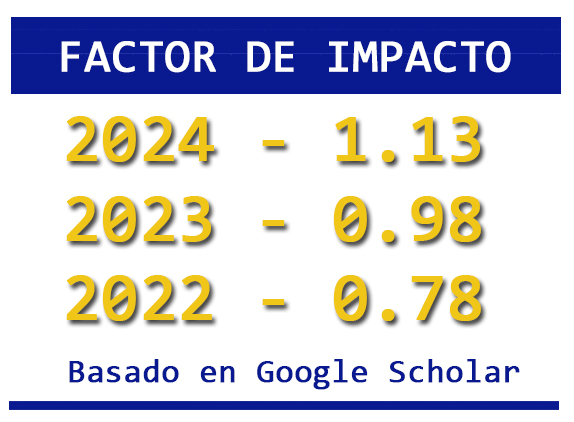Guide for the execution of negotiations
DOI:
https://doi.org/10.36790/epistemus.v12i25.80Keywords:
negotiation, negotiation threads, negotiation execution, practical guideAbstract
The negotiation process is made up of several stages, with implementation being considered among the most complex and significant, as it is the moment when the interaction between the negotiating parties is most intense, and in which both parties present their interests and needs. Currently, the specialized bibliography refers to a series of negotiation models, setting out the objectives to be covered in each of their stages. However, they lack the detail required to guide specialists through the execution stage of the negotiation. For this reason, the objective of this research was to develop a guide setting out the activities to be carried out during the execution stage of a negotiation, as well as the inputs, techniques and tools, and outputs involved in each of these. The work carried out was based fundamentally on the analysis of documentation and the author’s participatory observation of various negotiation processes. The proposal drawn....
Downloads
References
Anthopoulos, L. & Xristianopoulou, A. (Mayo de 2012). Negotiation Models for Managing Projects: a Review. En, Management of International Business and Economic Systems (MIBES-ESDO) 2012, Conferencia Internacional, Larissa, Grecia.
Antonio, J., & Barraza, V. (2017). Desarrollo de negociación. Citación: Unidad de Diseño Educativo. Zapopan, Jalisco: CTA-CUCEA, Universidad de Guadalajara.
Cano, J. A., & Baena, J. J. (2015). Tendencias en el uso de las tecnologías de información y comunicación para la negociación internacional. Estudios Gerenciales, 31(136), 335-346. DOI: https://doi.org/10.1016/j.estger.2015.03.003
Casal, J. P. V. (2016). Manual de negociación y resolución de conflictos: Define objetivos, resuelve incidencias y obtén resultados. Barcelona, España: Profit Editorial.
Covey, S. R., & England, B. (2012). La tercera alternativa: Para resolver los problemas más difíciles de la vida. Paidos.
Evertsz, C. J. B. (2000). La comunicación efectiva. Instituto Tecnológico de Santo Domingo.
Fisher, R., Ury, W., & Patton, B. (2011). Getting to yes: Negotiating agreement without giving in. Penguin.
Linares, A., Calderón, F., Donatti, K., Hernández, L. & Martínez, J. (2009). Estrategias y tácticas de negociación en la comercialización. (Tesis de pregrado). Instituto Politécnico Nacional Escuela Superior de Comercio y Administración, México.
Manuel Dasí, F., & Martínez, R. M. V. (2015). Los cien errores en los procesos de negociación. ESIC Editorial.
Mills, H. A. (2016). Negociar: el arte de ganar. Parkstone International.
Nocetti, V. (2007). Fundamentos de negociación. Serie Documentos Docentes (SDD), 5(1), 2-24.
Ogliastri, E. (1998). El estilo negociador de los latinoamericanos. Una Investigación cualitativa. Colombia Internacional, 1(41), 70-83. DOI: https://doi.org/10.7440/colombiaint41.1998.04
Pons, C. (2015). Comunicación no verbal. Editorial Kairós.
Poyatos, F. (2013). La Comunicación No Verbal como asignatura en Filologías Clásicas y Modernas. Didáctica: Lengua y Literatura, 25, 231-257. DOI: https://doi.org/10.5209/rev_DIDA.2013.v25.42244
Sepúlveda, D. P. (2012). La Negociación Cooperativa, una Aproximación al Modelo Harvard de Negociación. Revista Chilena de Derecho y Ciencia Política, 3(2), 253-271. DOI: https://doi.org/10.7770/rchdycp-V3N2-art374
Stepke, F. L. (2012). La conducta implícita en la relación bipersonal. Persona, (15).
Tarantino-Curseri, S. (2017). Una breve pincelada sobre algunas áreas del saber necesarias para una negociación exitosa. Suma de Negocios, 8(17), 63-78. DOI: https://doi.org/10.1016/j.sumneg.2016.07.001
Ury, W. (1991). Supere el No: Cómo negociar con personas que adoptan posiciones obstinadas. Editorial Norma–Bogotá-1996.
Zapiola, C. M. A. (2009). La negociación: un enfoque transdisciplinario con específicas referencias a la negociación laboral. Cinterfor/OIT.
Downloads
Published
How to Cite
Issue
Section
License

This work is licensed under a Creative Commons Attribution-NonCommercial-NoDerivatives 4.0 International License.
The magazine acquires the patrimonial rights of the articles only for diffusion without any purpose of profit, without diminishing the own rights of authorship.
The authors are the legitimate owners of the intellectual property rights of their respective articles, and in such quality, by sending their texts they express their desire to collaborate with the Epistemus Magazine, published biannually by the University of Sonora.
Therefore, freely, voluntarily and free of charge, once accepted the article for publication, they give their rights to the University of Sonora for the University of Sonora to edit, publish, distribute and make available through intranets, Internet or CD said work, without any limitation of form or time, as long as it is non-profit and with the express obligation to respect and mention the credit that corresponds to the authors in any use that is made of it.
It is understood that this authorization is not an assignment or transmission of any of your economic rights in favor of the said institution. The University of Sonora guarantees the right to reproduce the contribution by any means in which you are the author, subject to the credit being granted corresponding to the original publication of the contribution in Epistemus.
Unless otherwise indicated, all the contents of the electronic edition are distributed under a license for use and Creative Commons — Attribution-NonCommercial-ShareAlike 4.0 International — (CC BY-NC-SA 4.0) You can consult here the informative version and the legal text of the license. This circumstance must be expressly stated in this way when necessary.
The names and email addresses entered in this journal will be used exclusively for the purposes established in it and will not be provided to third parties or for their use for other purposes.
























